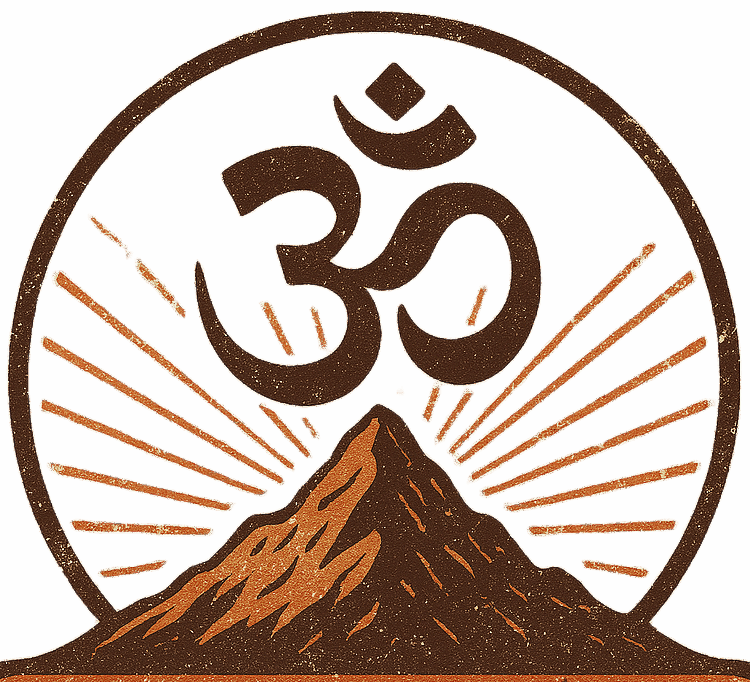You’ve been “working on yourself” for years.
You’ve read the books. Listened to hundreds of podcast hours. Tried meditation, journaling, cold showers, morning routines. You understand concepts like growth mindset, atomic habits, neuroplasticity. You can explain why gratitude matters and how limiting beliefs work.
And you’re basically the same person.
Maybe slightly more informed. Maybe you have better vocabulary for your problems. But fundamentally—in how you react under pressure, how you handle difficulty, how mechanical your responses are—nothing has changed.
This isn’t failure. This is predictable. Because almost everything called “self-improvement” is working on the wrong thing.
The Knowledge Problem
Self-improvement culture operates on a hidden assumption: if you understand what to do, you’ll be able to do it.
This is false.
You can understand that you should maintain calm under pressure. You can know techniques for emotional regulation. You can have read ten books on not taking things personally.
And the instant someone criticizes you, you react exactly as you always have. Defensive, hurt, needing to be right.
Why? Because understanding is not capacity.
What self-improvement calls “working on yourself” is almost entirely accumulating knowledge—information, frameworks, insights, techniques. Knowledge accumulates quickly. You can become an expert in self-improvement concepts within months.
But being—your actual level of functioning, your real capacity to do what you know you should do—transforms slowly, through entirely different work.
The gap between these two is where years get wasted.
What Being Actually Means
“Being” isn’t some mystical concept. It’s observable:
- Can you maintain calm attention for 5 minutes without your mind wandering?
- Can you witness an emotion without immediately reacting to it?
- Can you observe yourself getting defensive without the defense completing itself?
- Can you sit with discomfort without reaching for distraction?
- Can you maintain your intention when resistance appears?
These are being-questions. They measure capacity, not understanding.
Most people can’t do any of these consistently. Not because they don’t understand why they should. But because their being hasn’t developed the capacity.
This is why you can read about not taking things personally while taking everything personally. Why you understand emotional regulation but can’t regulate emotions in the moment. Why you know your triggers but still get triggered.
Knowledge ≠ Being.
The Traditional Understanding
This isn’t new. Traditional teachings—before they got commodified into self-help—distinguished between these clearly.
Gurdjieff (early 20th century esoteric teacher) called them knowledge and being. He said most people develop huge knowledge while their being stays at childhood level. This creates what he called “learned fools”—people who know everything and can do nothing.
Vedanta distinguishes parokṣa-jñāna (indirect knowledge from study) from aparokṣa-jñāna (direct knowledge from realization). One is intellectual understanding. One is actual capacity that changes how you function.
Buddhism distinguishes intellectual understanding from prajñā—wisdom that transforms how you perceive and respond.
All traditions recognized: you can study water and die of thirst. Understanding transformation ≠ undergoing transformation.
Why Self-Improvement Focuses on Knowledge
Because knowledge is easier to package and consume.
You can sell a book, a course, a framework. You can deliver understanding through content. Knowledge feels productive immediately—you read something and feel you’ve learned.
Being development can’t be sold easily. It requires sustained daily practice over months and years. It feels like nothing is happening for long periods. It’s not content-consumable.
So self-improvement culture sells what can be sold (knowledge) and implies it will produce what it can’t deliver (transformation of being).
What Actually Develops Being
Not reading about practices. Doing practices. Daily. For months. Through the periods where nothing seems to happen.
Examples:
Self-observation practice: Not “be more self-aware” but actual practice—set timer, spend 10 minutes simply observing your thoughts without engaging them. Do this daily for 90 days. Your capacity to witness without identifying will actually develop. This is being-work.
Conscious suffering: Not avoiding discomfort but choosing to be fully present with it without expressing or escaping it. Sit with the frustration without complaining. Feel the exhaustion without showing it. Hold the tension without discharging it. This transforms how you metabolize difficulty. (There’s a full manual on this if you want the details.)
Maintaining intention through resistance: Choose something small—wake at 6am, or meditate 10 minutes, or no phone for first hour awake. Do it every single day for 90 days. Not when motivated. Every day. Including the days you don’t want to. This builds actual capacity to maintain intention against resistance.
These practices don’t feel like “improvement” because nothing dramatic happens. No breakthrough insights. No sudden transformations. Just daily repetition building capacity that wasn’t there before.
After 90 days, you’re different. Not because you understand more. Because you can do what you couldn’t do before.
The Timeline Problem
Knowledge develops in weeks/months. Being develops over years.
This timeline offends the part of us that wants results now. So we default to accumulating more knowledge instead, which feels productive while requiring no actual change.
Real timeline for being development:
- 3 months: New capacity barely noticeable, want to quit
- 6 months: Can sometimes access new capacity under ideal conditions
- 1 year: New capacity becoming baseline but not stable
- 2-3 years: Genuine transformation, new baseline functioning
Most people quit around month 2 because “it’s not working.” It is working. It’s just working on a timeline personality doesn’t like.
How to Tell the Difference
Knowledge work feels like:
- Reading about techniques
- Understanding frameworks
- Collecting new approaches
- Feeling like you’re learning
- Impressive to talk about
Being work feels like:
- Daily repetition of same practice
- Nothing seems to be happening
- Boring, unglamorous
- Hard to explain to others
- Requires discipline when motivation is gone
Most self-improvement is 95% the first, 5% the second. This is why understanding accumulates while capacity doesn’t.
What This Means Practically
If you’ve been “working on yourself” for years with minimal actual change:
1. Stop accumulating more knowledge. You already know enough. The problem isn’t insufficient information. The problem is you’re not practicing what you know.
2. Choose one practice. Not five techniques. One. Self-observation, or meditation, or conscious suffering, or maintaining a single intention. One thing.
3. Do it daily for 90 days minimum. Not when inspired. Not when convenient. Daily. Track it. Every single day.
4. Measure by capacity, not understanding. Not “did I learn something” but “can I do something I couldn’t do before.” Can you maintain attention longer? Witness emotions better? Hold intention against resistance?
5. Accept the timeline. Months to see initial results. Years for genuine transformation. This offends the part wanting quick results. That part is exactly what needs to transform through sustained practice.
The Uncomfortable Truth
Ten years of reading self-improvement produces an educated ego that knows all the right concepts while remaining completely mechanical in actual functioning.
Ten years of daily practice on being produces someone who is genuinely different—not because they understand more, but because their actual capacity to function consciously has transformed.
Most choose the first because it feels like progress while requiring no real change. The second requires facing that you’re not as conscious/disciplined/aware as you think, then doing unglamorous repetitive work for years.
But only the second actually works.
Where to Go From Here
Ompyrean provides authentic engagement with traditional esoteric teaching (Gurdjieff, Aurobindo, Vedanta) that explains how transformation actually works versus how self-improvement culture says it works.
Key articles:
- Knowledge and Being explained in depth (part of longer article on consciousness)
- Conscious Suffering: A Manual (how to work with difficulty)
- Why you keep quitting (the Law of Octaves section)
But reading those is knowledge-work. The actual work is: choose one practice, do it daily for 90 days, measure by capacity not understanding.
That’s the work that actually transforms.
TL;DR: Self-improvement culture works on knowledge (understanding what to do). This accumulates quickly but changes nothing. What actually transforms is being (capacity to do what you know). This develops slowly through daily practice over years. Most people accumulate vast knowledge while their being stays mechanical. Stop reading. Start practicing. One thing, daily, for 90 days minimum. Measure by what you can do, not what you understand.

